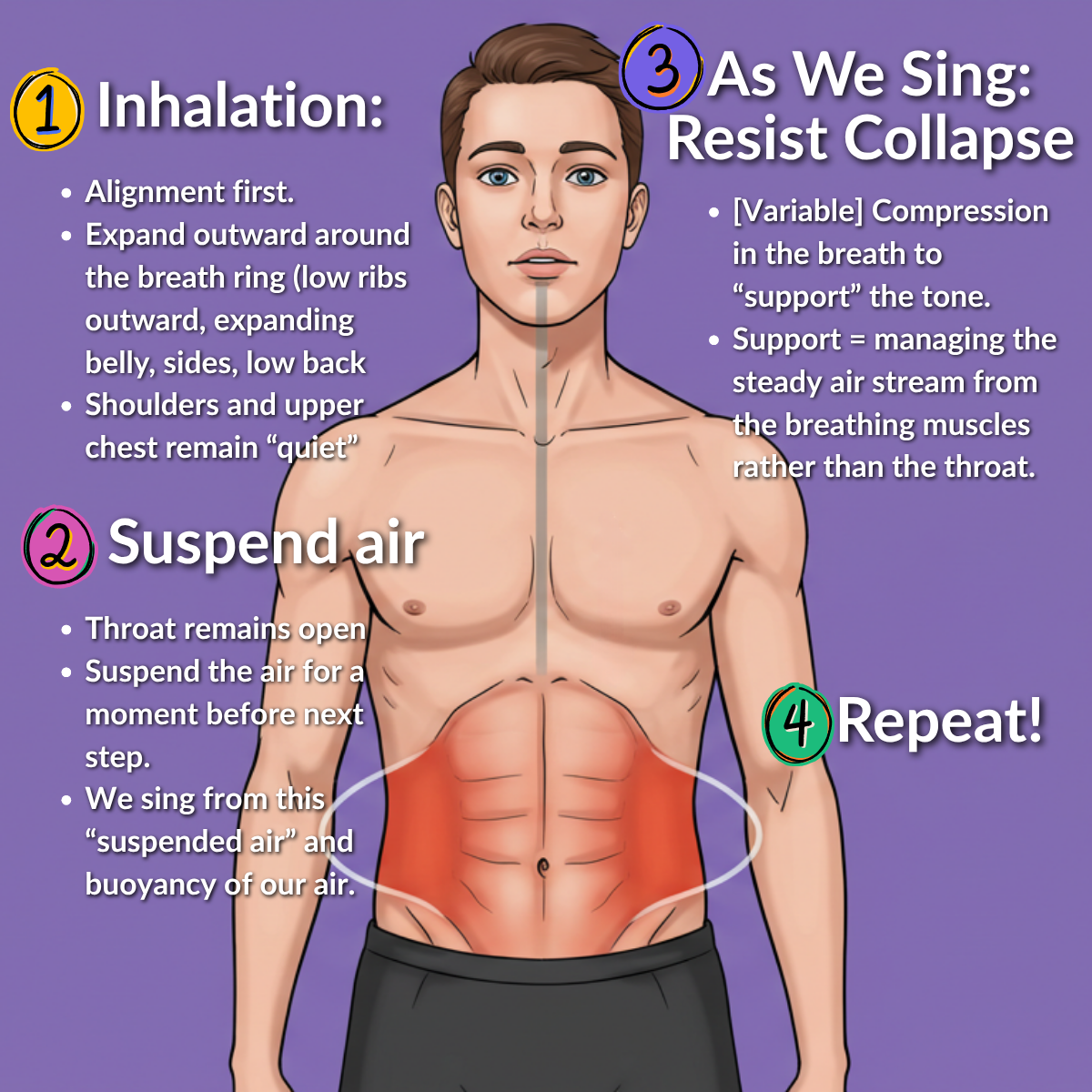12 Common Singing Tips That Are Often Misunderstood – And How the Right Vocal Coach Can Set You Straight
By Ted Chamberlain | Vocal Coach & Founder of Ted’s Voice Academy
Why One-Size-Fits-All Singing Advice Can Be Harmful
At Ted’s Voice Academy, I’ve worked with countless singers—each with a different voice, experience level, and set of goals. Many come in carrying vocal advice they’ve heard over the years. Sometimes that advice was shared by a choir director, a well-meaning friend, or an online video.
And while these tips were likely meant to help, they often do more harm than good when misunderstood, misapplied, or used out of context.
The truth is: singing is not one-size-fits-all. What works beautifully for one voice might be disastrous for another. That’s where skilled, individualized coaching makes all the difference.
1. “Sing from your diaphragm.”
The diaphragm is an involuntary muscle—you don’t control it directly. Instead, singers need to focus on breath management, body alignment, and coordination. A great coach helps build the sensation of support without forcing it.
2. “Take a deep breath.”
Many interpret this as overfilling the lungs, leading to tension and tightness. A more useful cue? “Take a silent, expansive breath” that prepares the voice without excess effort.
3. “Low breath only.”
Encouraging low breath can help avoid shallow chest breathing, but overly restricting breath to the belly disconnects it from the ribs and back. Breath should feel three-dimensional—not just low.
4. “Avoid glottal attacks.”
Overusing glottal onsets can fatigue the voice—but they can be helpful in moderation, especially for singers with overly breathy tone or in specific styles. It’s about knowing when to use them and when to avoid them.
5. “Always use a soft onset.”
A gentle onset is often good practice—but not always. Some vocal styles benefit from a crisp, clear onset that gives the tone bite and energy.
6. “Sing in the mask.”
A well-known concept, but easily misunderstood. Forward resonance is valuable—but it must be rooted in healthy phonation and body alignment. Trying to “place” sound in the face often creates unnecessary tension.
7. “Brighten the tone” or “Darken the tone.”
These cues can easily go too far. Brightening may lead to spread vowels; darkening can cause muffled or swallowed tone. A coach helps you find your tone balance while staying healthy and expressive.
8. “Place the sound forward.”
Often misunderstood as a muscular effort. True forward resonance is about acoustic tuning, not pushing sound or contorting the face.
9. “Match your vowels.”
Important in ensemble singing, but forcing identical vowels can lead to vocal strain. Matching should come from resonance alignment, not from tension or artificial vowel shapes.
10. “Use more breath to sing louder.”
More air doesn’t equal more volume. In fact, overblowing can tire or damage the voice. Loudness comes from resonance and vocal efficiency, not just increased airflow.
11. “Sing softer with less breath.”
Another problematic tip. Singing softly still requires breath support—just more refined control. The goal is light intensity, not collapse.
12. “Keep everything connected.”
While smooth transitions are a worthy goal, some styles (pop, gospel, yodels) use intentional breaks or flips for effect. A flexible voice can do both—with control.
The Real Solution? Personalized Coaching That Works for YOU
Each of these misunderstood tips has one common flaw—they assume the same rule applies to every singer. But your voice, your instrument, your artistic goals… are yours alone.
That’s why good vocal coaching is not about rigid rules—it’s about smart, informed guidance that:
- Identifies what your voice actually needs
- Helps you unlearn what’s holding you back
- Aligns technique with style, health, and authenticity
Why So Many Singers Come to Me Carrying Vocal Baggage
I meet so many singers who’ve spent years chasing “shoulds”:
- I should sing from my diaphragm.
- I should never use vibrato.
- I should always match the soprano’s vowels.
The result? Bad habits, confusion, tension, and vocal limitations.
When we work together, we start clearing away those layers of misunderstanding. What’s left is often surprising—your natural voice, released and empowered.
Final Thought: Great Singing Isn’t About Memorizing Rules
It’s about mastering your instrument, understanding your options, and choosing what works for your voice, in your genre, with your goals in mind.
And you don’t have to do it alone.
Book a Session with Ted’s Voice Academy
Whether you’re in Lacey, WA or anywhere in the world, I offer one-on-one coaching that helps you reclaim the voice that’s already inside you.
🎤 In-person or virtual
🎶 All levels, all styles
💡 Results-focused, supportive, and customized
📧 Email me at ted@tedsvoiceacademy.com
🌐 Explore coaching options at www.tedsvoiceacademy.com
Tags:
#singingtips, #vocalcoach, #voicecoaching, #breathsupport, #resonance, #singinglessons, #barbershop, #vocalhealth, #authenticvoice, #tedsvoiceacademy





Leave a Reply